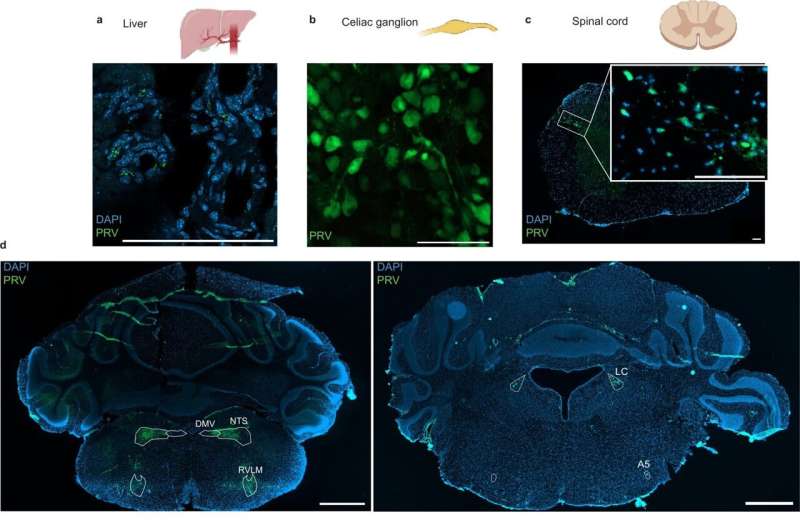Research by the Technion has demonstrated that activation of the brain’s reward system could boost recovery from a heart attack. The research, which was conducted at the Ruth and Bruce Rappaport Faculty of Medicine, was led by Ph.D. student Hedva Haykin under the supervision of Prof. Asya Rolls and Prof. Lior Gepstein.
The Technion research group focused on the reward system, a brain network activated in positive emotional states and motivation and evaluated its potential in improving recovery from acute myocardial infarction (AMI) (commonly known as a heart attack).
In an article published by the researchers in Nature Cardiovascular Research, they demonstrate how in AMI in mice, the activation of this system significantly reduces the extent of the resulting infarct scarring and improves the clinical outcomes of the AMI.
The research findings establish a causal connection between the reward system and recovery from AMI, introducing potential therapeutic avenues for intervention.
It has long been known that emotional states are able to influence cardiac function. For example, in an extreme case known as “Broken Heart Syndrome,” acute stress is liable to trigger a condition that mimics a heart attack. Broken heart syndrome is a condition where some of the heart muscle weakens rapidly, but there is no evidence of blocked coronary arteries.
Similarly, psychological processes have a known impact on recovery from a heart attack, and on cardiovascular disease in general. For instance, anxiety and depression can worsen the heart’s condition, whereas positive emotional states can improve it.
The physiological mechanisms at the foundation of the heart-brain connection are still unclear. Now, thanks to the collaboration between Profs. Rolls and Gepstein, there is good reason to hope that the research findings will lead to improvements in the treatment of heart disease.

Heart attacks occur when blood flow to the heart muscle (myocardium) is obstructed following partial or complete blockage of a coronary artery by blood clots. In the acute phase, this is liable to lead to a variety of severe symptoms, and even to life threatening arrhythmia (sudden cardiac arrest). In the chronic phase, prolonged deprivation of oxygen supply to the myocardium can lead to necrosis and post-necrotic myocardial scarring as part of an inflammatory reaction. This leads to a gradual decline in the heart’s ability to pump, to the point of developing a clinical condition known as heart failure.
As mentioned, there is evidence that the emotional state can influence the course of disease and recovery following AMI, but until now, the underlying physiological mechanisms were not well understood. The Technion research reveals a novel mechanistic connection between the mental state and recovery outcomes from heart attack.
The reward system is largely activated by the release of dopamine in the ventral tegmental area (VTA) in the brain. Positive expectations and motivation stimulate neurons in the VTA. Studies in Prof. Rolls’ laboratory have shown that activation of VTA dopaminergic neurons modulates immune activity, partly through the regulation of the sympathetic nervous system.
In the present study, active intervention in the VTA by the researchers following AMI resulted in favorable modulation of the immune response within the damaged myocardium, a reduction in myocardial fibrosis, an increase in blood vessel formation, and, as a result, an improvement in cardiac performance. The researchers found that these beneficial effects on the heart are mediated, at least in part, by the secretion of the protein, complement component C3, by the liver, which is also a member of the immune system.
There are presently numerous methods to actively (as opposed to naturally) stimulate the reward system, in humans as well. This effect is potentially achievable by available, non-invasive means, including pharmacological interventions, biofeedback, and focused ultrasound. Consequently, the Technion researchers’ scientific discovery could have meaningful future implications on the treatment of heart attacks.
More information:
H. Haykin et al, Reward system activation improves recovery from acute myocardial infarction, Nature Cardiovascular Research (2024). DOI: 10.1038/s44161-024-00491-3
Citation:
When the brain speaks, the heart feels it—the link between the brain’s reward system and acute myocardial infarction (2024, July 17)
retrieved 17 July 2024
from https://medicalxpress.com/news/2024-07-brain-heart-link-reward-acute.html
This document is subject to copyright. Apart from any fair dealing for the purpose of private study or research, no
part may be reproduced without the written permission. The content is provided for information purposes only.

